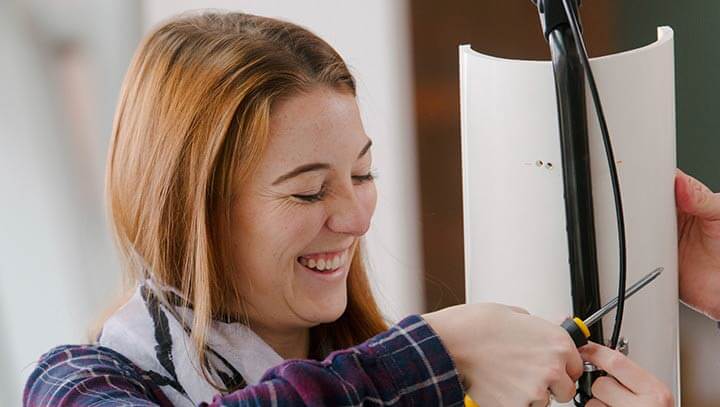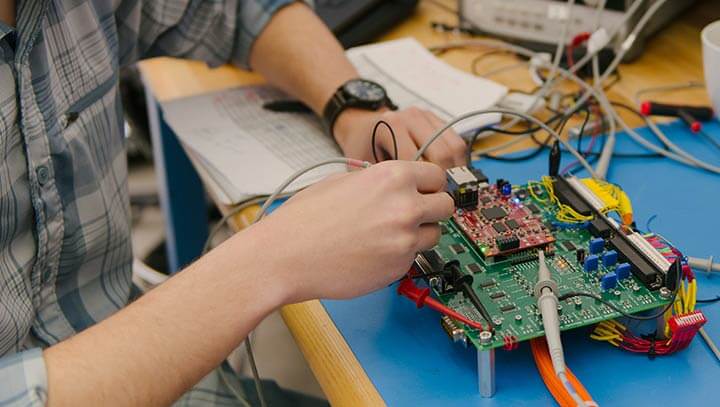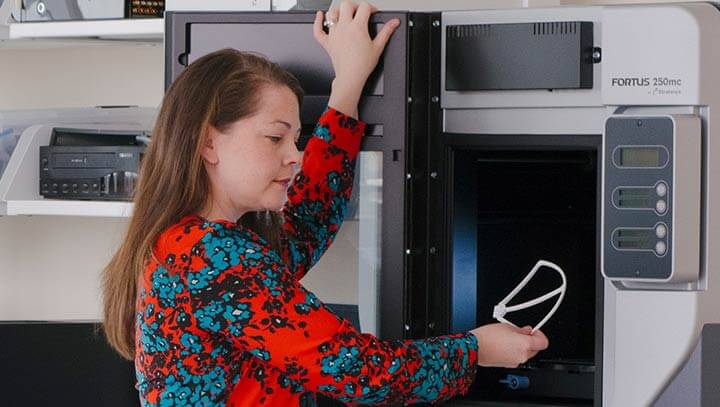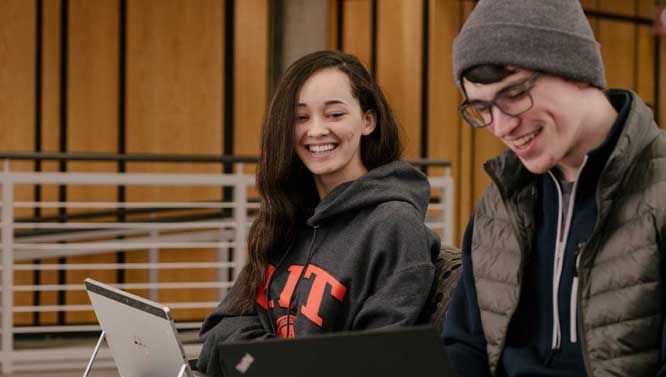Dear Friends of RIT,
What is greatness?
Greatness is surrounding yourself with diverse talent—thinkers and creators who elevate a team. Greatness is creating a transformative student experience inside and outside the classroom, leading to alumni who become engaged global citizens.
Greatness is bringing goodness to the world through research and discovery. Greatness is reimagining innovation.
Please join us on our journey as we work together toward a shared destiny. We’re driving progress. We’re shaping what’s possible. We’re transforming the future, by transforming RIT.
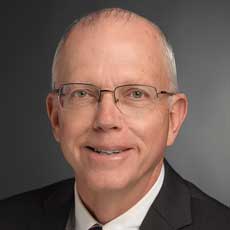
President
Rochester Institute of Technology
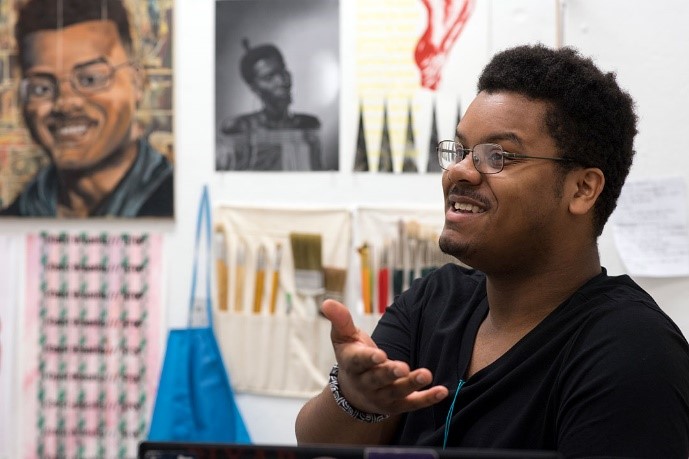
Unique Fair-Smith BFA ’19
Unique Fair-Smith
His teacher brought him and other artistically inclined students for a visit to the RIT campus and as they passed by the illustration studios, he saw a glass case displaying hot sauce bottles designed by illustration students for a project. Something about it captivated him.
“I saw that and thought that is extremely cool and I want to do that,” said Fair-Smith. “I walked away from that meeting in 10th grade knowing I wanted to go to RIT for illustration.”
He achieved that dream thanks in part to funding from the Destler/Johnson Rochester City Scholars program and by his junior year at RIT, he had his own hot sauce bottle designs featured in the same showcase.
So he set out to achieve more and after earning his illustration BFA in 2019, Fair-Smith decided to further hone his skills by pursuing his master’s degree in fine arts studio.
He became one of the first two recipients of the Mark and Maureen Davitt Graduate Education Endowed Scholarship, established with a $500,000 gift to the university by Mark and Maureen Davitt to help graduates from the Rochester City School District pursue advanced degrees.
Working under the guidance of advisors, including Professor Luvon Sheppard, Associate Professor Clifford Wun, and Professor Eileen Bushnell, Fair-Smith refined his craft in oil painting and screen printing, exploring themes of oppression and liberation, exploring systemic impacts and how they affect people. He said that after graduation he will pursue residencies, grants, and commissions to develop his body of work and hopes to improve representation in the art community.
Unique Fair-Smith BFA ’19
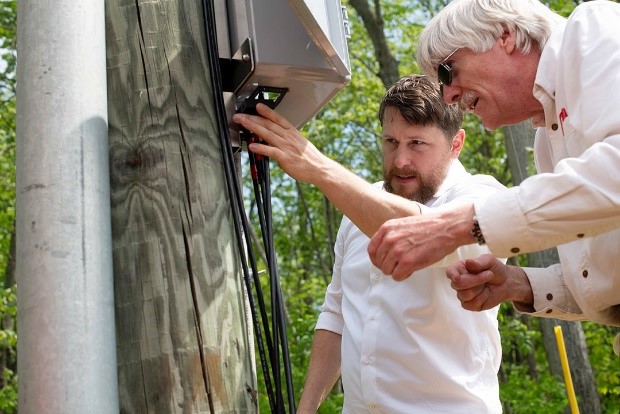
Michael Oshetski BS ’03
Groundbreaking Gridview optical sensors
The donation of the equipment for an outdoor learning laboratory by Micatu also includes $150,000 in funding for research projects related to assessing power quality, big data analytics, and infrastructure.
“The utility industry is often considered old and slow to move and therefore not considered innovative for new college engineering grads. As an industry, we are not attracting the talent we need to drive the next generation of grid modernization,” said Michael Oshetski BS ’03, founder and chief executive officer of Micatu.
By giving students practical, hands-on experience with the campus microgrid, RIT’s outdoor lab encourages students to pursue careers in the electric industry—a critical initiative as utilities struggle with replacing a large number of retiring employees, along with the knowledge and experience they have contributed over several decades.
Michael Oshetski BS ’03
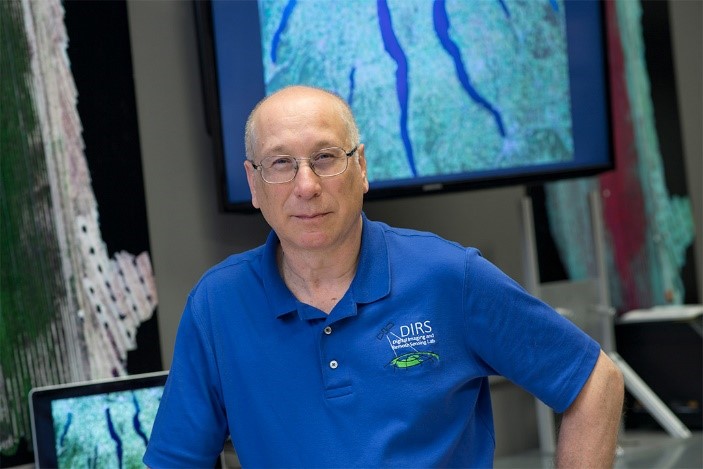
John Kerekes, Ph.D.
The National Geospatial-Intelligence Agency
The team studies how a signal is collected by a sensor, how it’s analyzed, and even how it’s visualized by a human. The NGA recognized that RIT was in a distinctive position to study this very difficult and challenging problem. Researcher/Engineer Scott Brown and Assistant Professor Emmett Ientilucci are the project’s co-PIs and the funding will support a Ph.D. student as well.
John Kerekes, Ph.D.
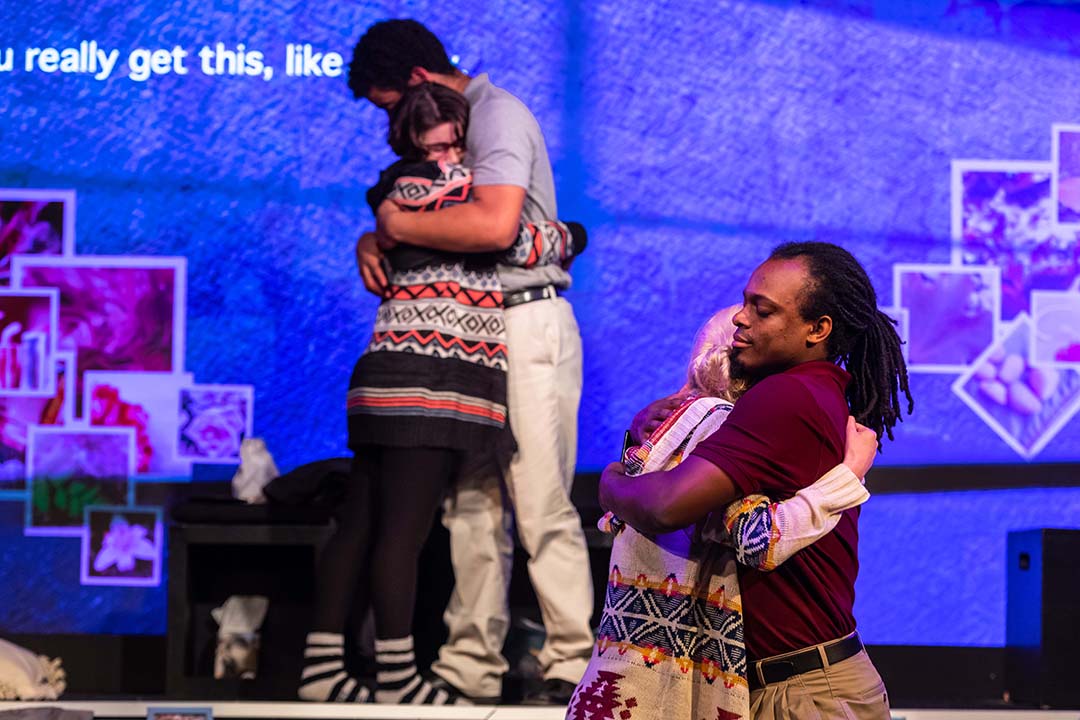
David Munnell Director, COLA Theater Arts
The Kennedy Center Honors RIT Theater
I and You, a joint COLA/NTID production directed by COLA faculty member, Andy Head, features a staging concept that allows for a four-actor "synchronized dance” of mirrored movement and line delivery in spoken word and ASL. The production had the honor of being invited to perform at the Kennedy Center American College Theater Festival in January 2020.
The COLA and NTID theatre programs took the student cast and production crew to College Park, Maryland, to present three performances at the Festival. The production and its cast were already recognized at the regional level with the Irene Ryan Acting Scholarship, as well as certificates of merit in stage management, properties, and lighting.
David Munnell Director, COLA Theater Arts
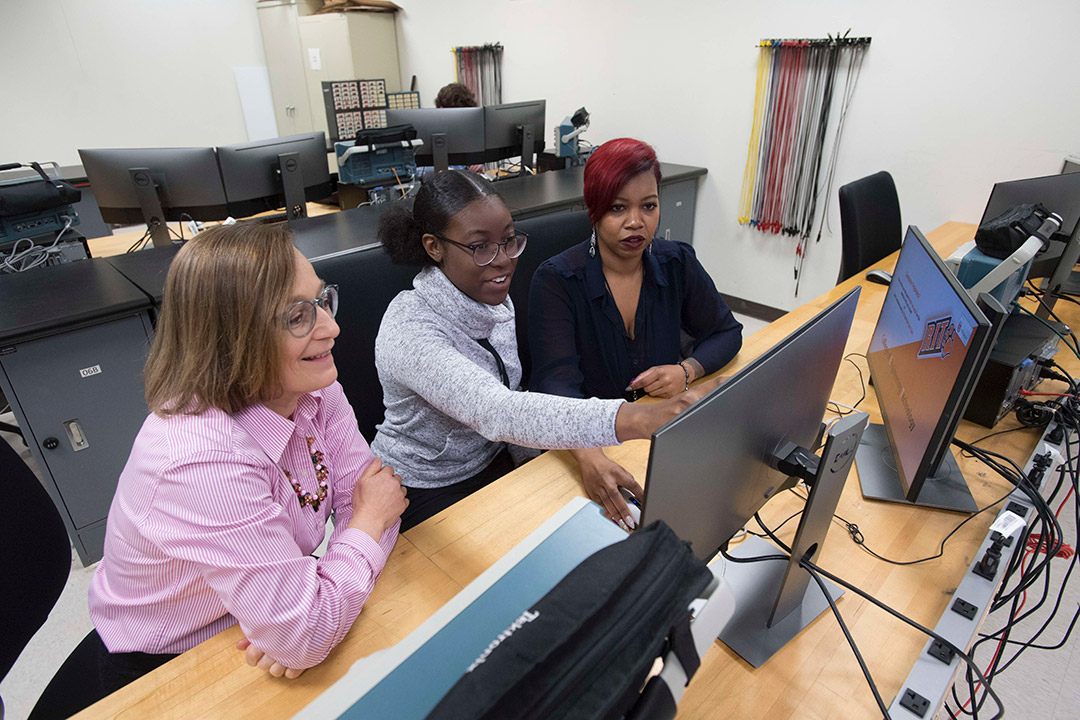
Jeanne Christman
Providing Scholarships, and a Student-Centered Support Network
The nearly $1,000,000 grant funds 36 scholarships for economically disadvantaged, academically talented students, and faculty programming to improve engineering technology education. In addition, the program creates a formal mentoring network for scholarship recipients, to encourage them to complete their STEM degrees.
Jeanne Christman, associate professor in the College of Engineering, is one of a core group of faculty-researchers with expertise in building collaborative learning environments, generally seen as an asset for engineering education. Trends in this area today involve blending theoretical engineering principles with more real-world applications, and varying the style of presenting engineering information to students to better connect theory with practice. One of the organizations leading this transformation is the Kern Foundation.
Jeanne Christman
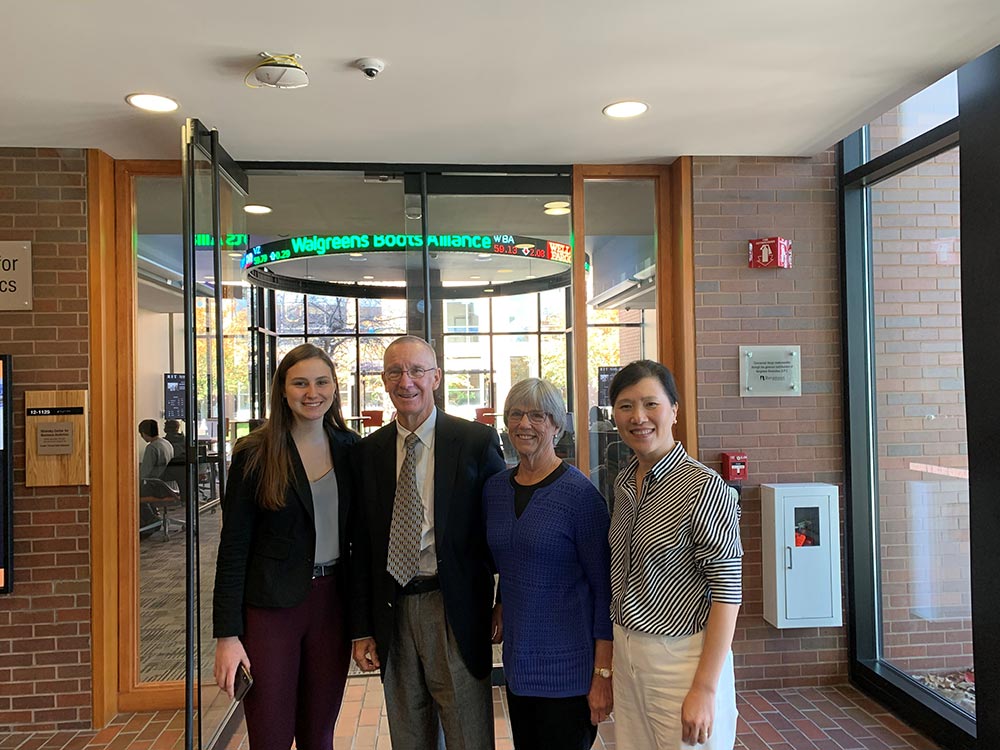
Anna Loso
Technology, and the Future of Finance
The research project, funded by a gift from Saunders College of Business alumnus, Charles Brown MBA ’79 and his wife, Renee, took Loso from the Saunders College to Shanghai for the KubeCon +CloudNativeCon Open Source Summit. There, professor Lui encourage her to step out of her comfort zone and talk directly to several technology professionals presenting their papers at the conference to gather insights into this industry changing technology and incorporate their thoughts into their research.
Now, she and professor Lui are working on a paper of their own, analyzing their data in order to make their own predictions about the future of blockchain, and other technologies like AI, and IoT, that will be impacting many different industries, and informing the future of her career success.
Anna Loso
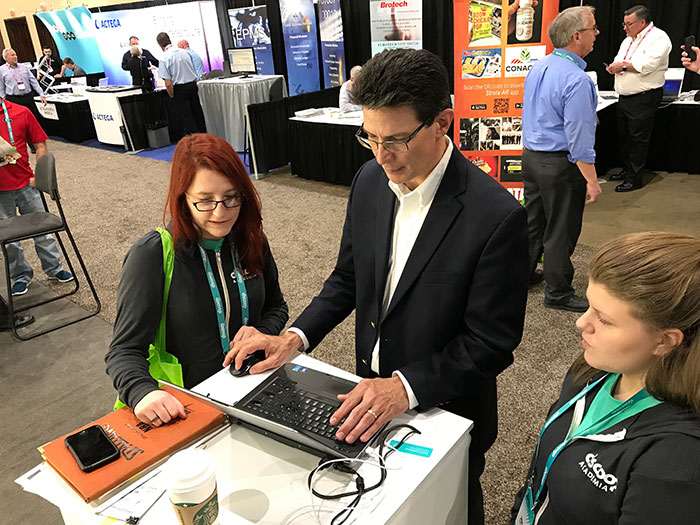
Henry Kuhn BS ’65
SMS student travel - Henry Kuhn
But the money needed to pay for students to attend isn’t always available. Event fees, transportation, and hotel costs can add thousands of dollars to a department’s budget. And there are hundreds of students across the university with hopes of attending an industry show or conference.
Fortunately for students in the School of Media Science, Henry Kuhn BS ’65 has them covered! Henry valued his RIT print education so much that he wanted to give back in an important way. With his generous gifts, the School now sends several students to the biggest graphics industry shows each year.
A decades long career doesn’t happen without many supporters. RIT alumnus and legendary design professor, Roger Remington ’64, has shepherded the School of Design through significant change, and knows the importance of donors to the design programs and students.
“Countless people have shown their faith in the School of Design’s vision by supporting our programs. They are an important part of my career and the careers of designers who have studied here.”
See more of Rodger’s vision.
Henry Kuhn BS ’65
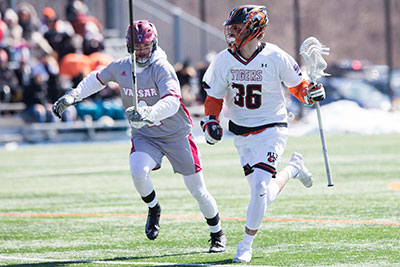
Ryan Rosenblum ’22 Mechanical Engineering (Aerospace) RIT Men’s Lacrosse
More than a Game
As his freshmen semester began, he realized that life as an RIT student athlete was more than a game. The rigor of engineering classes was intense and he would need to dedicate himself to his studies to be successful in college. But, he also needed to perform on the lacrosse field, which meant he had to learn to budget time between practice, meals, friends, and studies. This was an important skill he gained from his education and athletic experience at RIT.
Sharing that experience with teammates, and learning from coaches how to apply a disciplined approach to time management is just one of the life skills that RIT athletes develop. RIT donors who support the university’s 24 intercollegiate athletic teams are really helping student athletes build important skills for collegiate and career success.
Ryan Rosenblum ’22 Mechanical Engineering (Aerospace) RIT Men’s Lacrosse
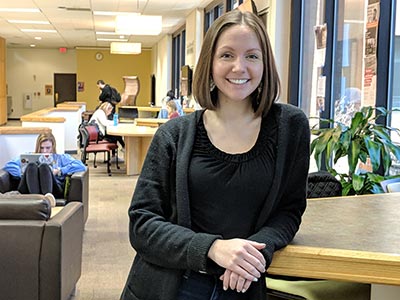
Jenna Rahrle ’19 Public Policy BS/MS, College of Liberal Arts Ruth M. & Brackett H. Clark Internship Support Fund recipient
Internships, Anywhere
Unlike cooperative education, internships are frequently not paid positions. And for many RIT students, the cost of living expenses for a semester or two keep them from being able to pursue internships away from home. The Ruth M. & Brackett H. Clark Internship Support Fund was established to help RIT students complete their required internships and seek the best opportunities for their future career, regardless of location.
Jenna Rahrle ’19 Public Policy BS/MS, College of Liberal Arts Ruth M. & Brackett H. Clark Internship Support Fund recipient
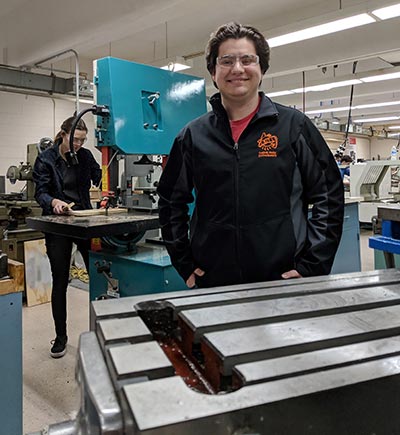
Travis Faircloth ’20 Mechanical Engineering, Kate Gleason College of Engineering Jon & Jessie Roberts Endowed Scholarship for the Performing Arts
From Backstage to Career
Travis has focused on the technical side of theater since coming to RIT. In spring 2018, he was part of a group of RIT engineering students who worked to design and create the setting of a new production of Rossum’s Universal Robots for a Rochester-area theater group. His team created the environment by designing and building working detailed robots and set pieces to illustrate a microcosm of the greater RUR universe. The team worked through the process of creating and manufacturing pieces to a design intent while also staying within real-world constraints like budget, workspace, and timeline. It was an incredible opportunity to use the design and problem solving skills that they all will use in their future engineering careers.
Travis Faircloth ’20 Mechanical Engineering, Kate Gleason College of Engineering Jon & Jessie Roberts Endowed Scholarship for the Performing Arts
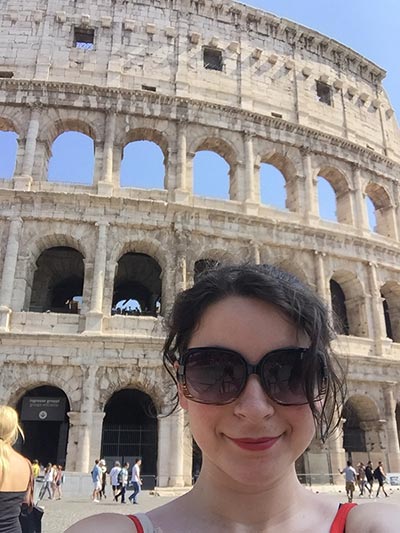
Jaleesa Panico ’18 Criminal Justice and Psychology double major, College of Liberal Arts Ruth & Brackett Clark Internship Support Fund
Internships, Italian Style
As a criminal justice and psychology double major, internships, not co-ops, are the norm for experiential learning. Some of the most valuable internship opportunities require students to travel and live in another city without the benefit of a salaried position. In Jaleesa’s case, her internship was a combined work abroad experience at the U.S. Consulate in Genoa, Italy, working on a number of projects related to psychology and law.
“The experience of learning about Italian law was amazing,” says Jaleesa. “It was exactly what I hoped to learn by going to a different country for my internship. And with my criminal justice studies so far, I was actually pretty good at navigating a different country's law.”
Jaleesa and other interns were assigned to act as representatives of the U.S. and the Consular Agency at multiple events. It was a privilege to be formal representatives for the United States, RIT, and the Agency – a privilege that few undergraduates experience. Jaleesa’s experience was made possible by the internship support she received.
Jaleesa Panico ’18 Criminal Justice and Psychology double major, College of Liberal Arts Ruth & Brackett Clark Internship Support Fund
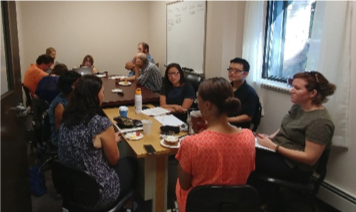
Howard Hughes Medical Institute grant aims to make science education more inclusive
To learn more about Transforming RIT: The Campaign for Greatness, how you can get involved, or to make your campaign gift, please visit rit.edu/transformingRIT. And watch for future updates on how philanthropic and government grant dollars are transforming RIT.
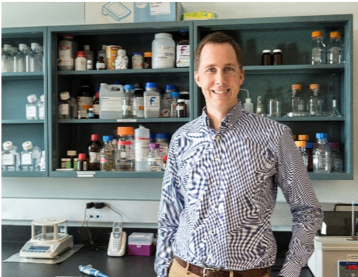
National Institutes of Health grant may offer new hope for kidney patients
Tom Gaborski, RIT associate professor of biomedical engineering, is developing these flexible structures made from porous materials for more precise cell filtration and analysis to detect diseases. Gaborski’s team is taking a dual approach in that evolution, testing and improving the nanofabrication process, and at the same time, evaluating the impact of the new nano-porous membranes—more than 1000x thinner than a human hair—on applications such as hemodialysis. The new membranes could be part of a wearable system that goes anywhere the patient does and helps continuously maintain proper water balance.
Gaborski says the membranes have many potential applications in medicine. “With support from the NIH grant, RIT is researching fabrication of ultrathin nano- and micro-porous membranes that may not only solve the needs of researchers studying the basic biology of barriers, but also scientists and engineers investigating drug discovery and stem cell differentiation.”
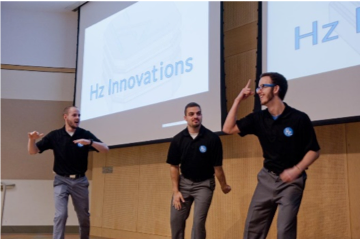
National Science Foundation grant supports innovation and commercialization
The I-Corps program supports early-stage commercialization of products in the sciences, technology, engineering and mathematics (STEM) fields. The program provides funding for academic teams to work with an entrepreneurial/industry coach and a curriculum that enables a robust customer discovery, business model development and minimum viable product development process.
Beginning in 2018, two I-Corps grants have been received; one in support of the innovation teams, and one that enabled RIT to launch the NSF Deaf Innovation Bowl.
NSF’s I-Corps program offers two designations.
I-Corps University Site designation is for universities to provide “internal” I-Corps training to STEM students and faculty. Each team receives training, a coach and access to $3,000 to advance its technology concept.
I-Corps Node designation, which can comprise one university or a group of universities, is for “external” I-Corps training for STEM faculty.
The Simone Center and RIT possess both Site and Node designation. RIT was designated as an NSF University Site in 2014 to conduct internal training, and in 2016, RIT received Node designation as part of the Upstate NY Alliance partnership formed with Cornell University and University of Rochester.

NASA Space Telescope Science Institute funds NTID
An NTID assistant professor of physics and a program faculty member in RIT’s astrophysical sciences and technology Ph.D. program, Nordhaus is also is a member of RIT’s Center for Computational Relativity and Gravitation, whose simulations of merging black hole binaries were used by the LIGO Project to confirm the breakthrough detection of gravitational waves from binary black holes in space.
This summer, Nordhaus will work with several deaf, hard-of-hearing and hearing students at RIT’s National Technical Institute for the Deaf to study four systems for which Nordhaus has comprehensive data obtained over the past two decades. They are hoping that their 3D computer simulations will help determine which planets survive the death of their parent stars and which are ultimately destroyed.
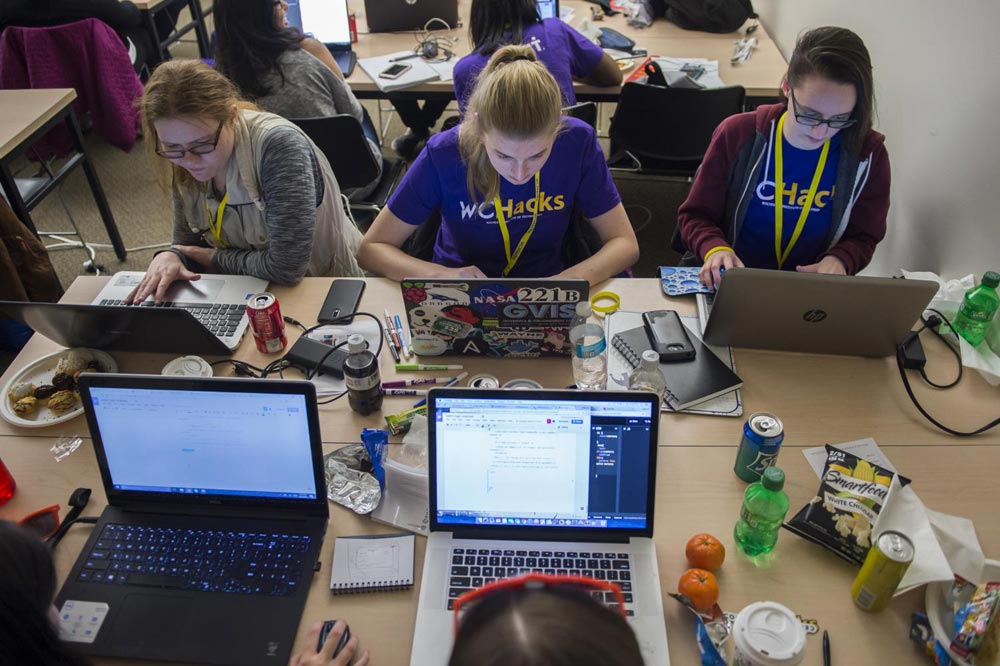
Computing is Female
degrees, the university is making great strides in bringing more women into this important area.
Support spans alumni, parents, faculty, and corporations:
- Alice Jo Lichtman ’79 Endowed Travel Fund – created by a female computer science alumnus, the fund supports women traveling to professional development conferences to build their network, skills, and access to mentors &
career persistence. - David & Melissa Egts Endowed Computer Science Scholarship – parents of an RIT female computer science student, will provide scholarship support specifically for undergraduate computer science students with a preference for females. The fund was just created this month and marks the college’s first endowed scholarship of its kind to benefit women in computer science.
- Women in Computing Endowed Scholarship – created by RIT faculty and seeking additional donor support, will provide scholarship support for an undergraduate student in GCCIS with a specific preference for female candidates.
- JP Morgan Chase general support of WiC – this corporate gift supports GCCIS women through scholarship, travel expenses, equipment, and other general activities to strengthen and improve the Women in Computing program at RIT.
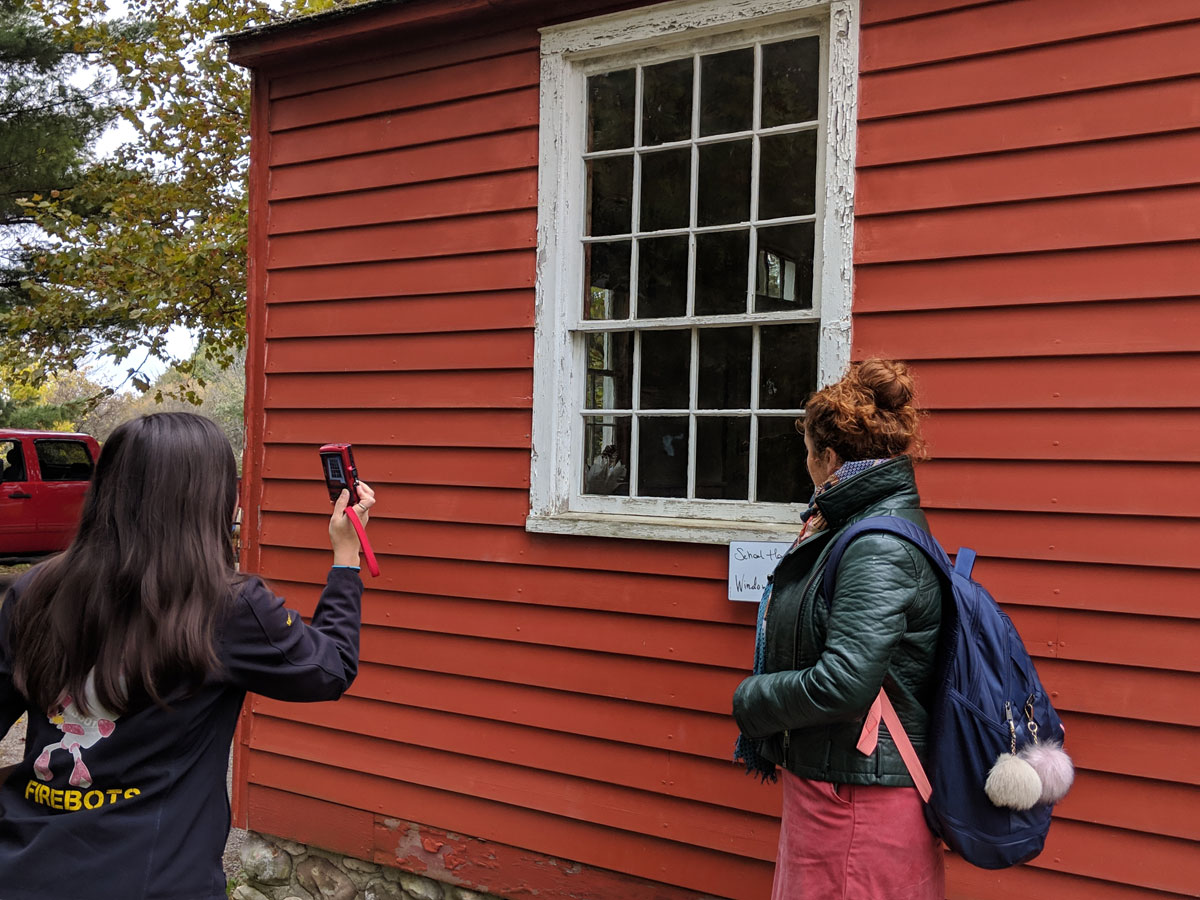
Technology + Humanities = History Saved
RIT’s unique blend of technology, humanities, and art and design programs makes such an interdisciplinary approach possible. RIT has the ability to bring together students from the right degree programs and have them collaboratively apply their advanced skills to GCV&M’s unique environment in a way, unlike most other universities. In turn, GCV&M has become a valuable hands-on research and learning laboratory for students in museum studies, business, engineering, computing, design, and digital humanities degree programs.
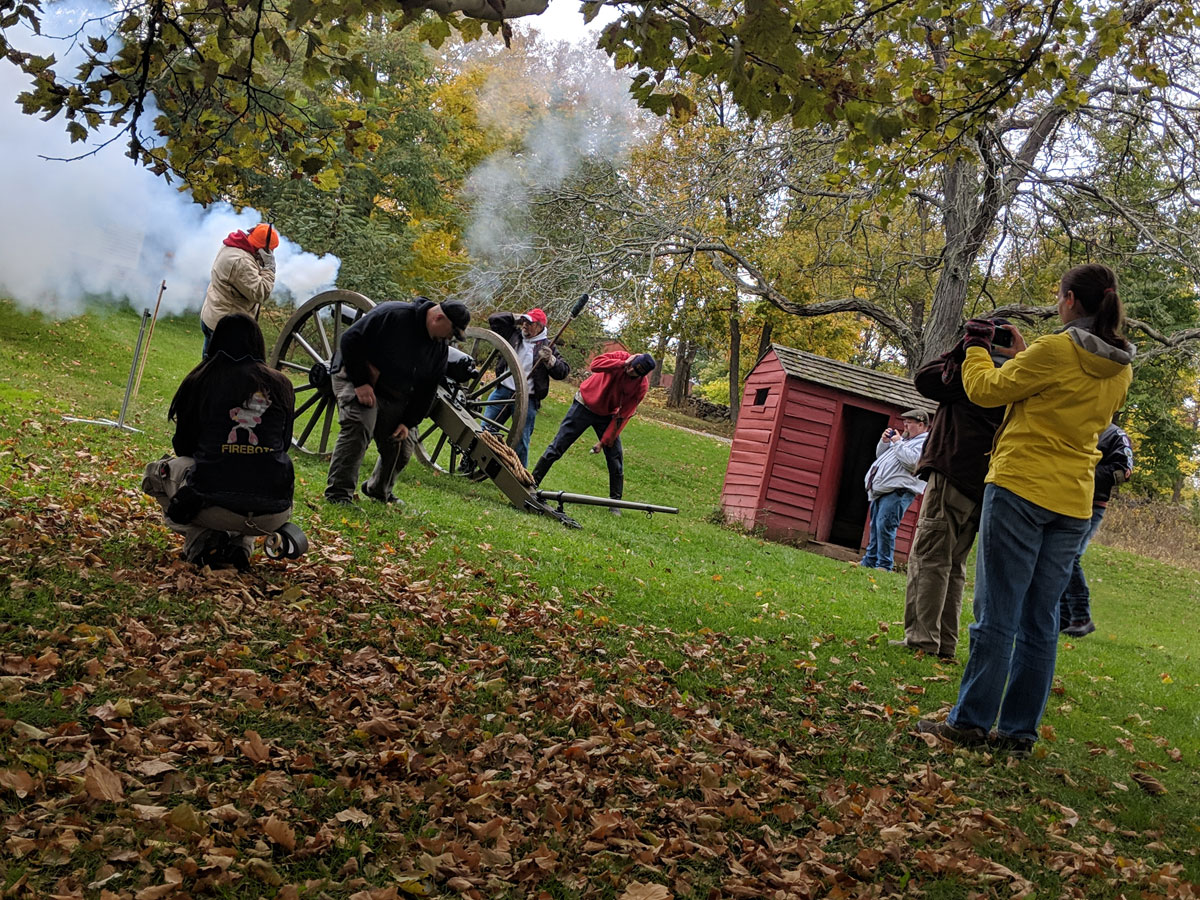
Career-defining Capstone Projects
Student team members build skills like communication, defining customer requirements, extensive documentation, and risk management. They also learn the value of process, risk assessment, decision making instead of instruction following, and how to plan for and respond to failure. In the case of one team, they learned how artillery fire during Civil War reenactments can damage historic structures in a living museum, and how engineering can be used to assess packing a charge design to lessen the impact on fragile glass and plaster.
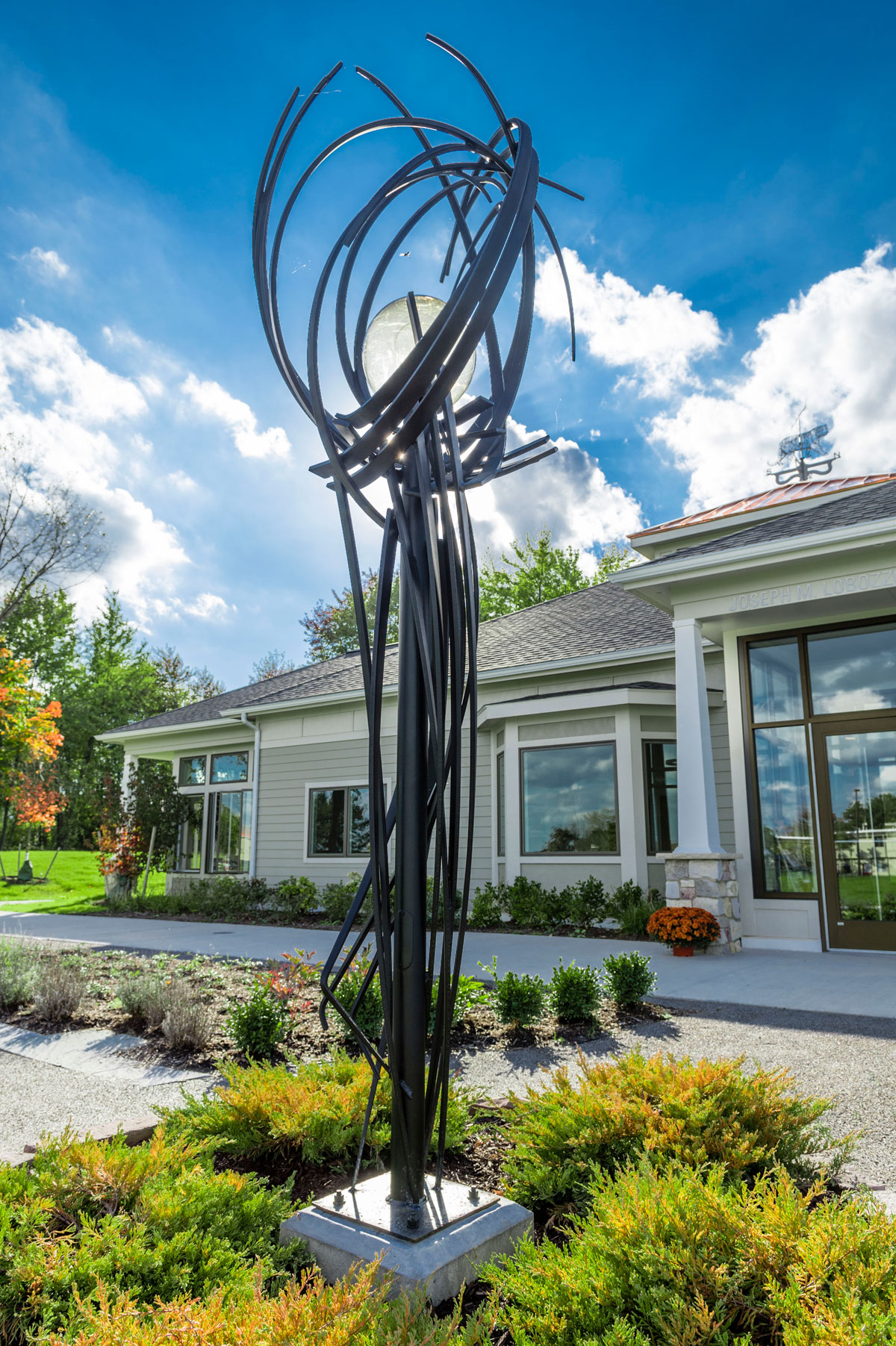
Your Support Helped Create a New Home for Alumni
Until fall 2018, RIT alumni had no place to call their own on the main campus – a campus that has changed dramatically since many of them were students. Helping our alumni navigate the modern campus, welcoming them when they return, and offering them the opportunity to gather as alumni groups here at their university was challenging.
Thanks to the generous gifts of many RIT alumni, the Joseph M. Lobozzo Alumni House became a home on campus for RIT alumni, and was officially dedicated in October 2018. This stunning alumni-centric facility is available for meetings, reunions, private events, and as an official welcome center for all RIT Tigers coming to visit campus for any reason.
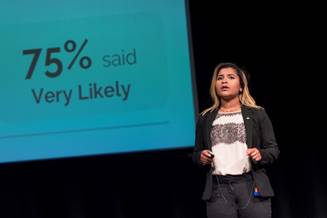
Anika Aftab 19, neuroscience and entrepreneurship
Entrepreneurship and a World of Discovery
Anika Aftab 19, neuroscience and entrepreneurship
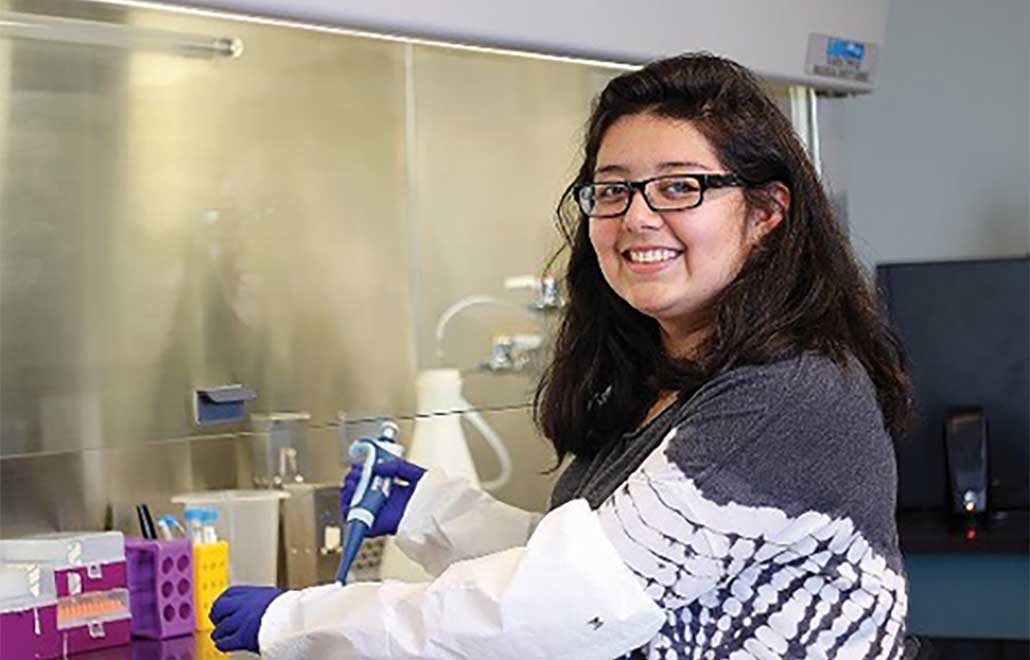
Melissa Mendoza ’17 (biomedical engineering)
Real preparation for future scientists
Melissa’s dreams, her education, and her invaluable research experience are all directly connected to the generous support of donors who believe RIT students can change lives.
Melissa Mendoza ’17 (biomedical engineering)
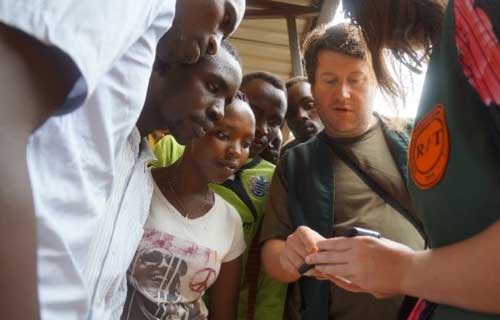
Brian Tomaszewski, Ph.D. associate professor Department of Information Sciences and Technologies, lab director, Center for Geographic Information Science and Technology
Study abroad + team project = world-changing opportunity
Students working with associate professor Dr. Brian Tomaszewski from the Center for Geographic Information Science and Technology have accompanied him physically and virtually to refugee camps in the Middle East and Africa. Working directly with the United Nations and refugees, students gather data and create mapping applications designed to enable refugees to navigate their environment, find resources, and access vital human services. Not an average study abroad trip, Dr. Tomaszewski’s students gain experience and skills using mapping technology to address real-world issues, and also gain a rare, first-hand view into the lives and experiences of refugees. Experiential learning that changes someone else’s life for the better is a valuable way to educate students for lives of purpose.
Brian Tomaszewski, Ph.D. associate professor Department of Information Sciences and Technologies, lab director, Center for Geographic Information Science and Technology
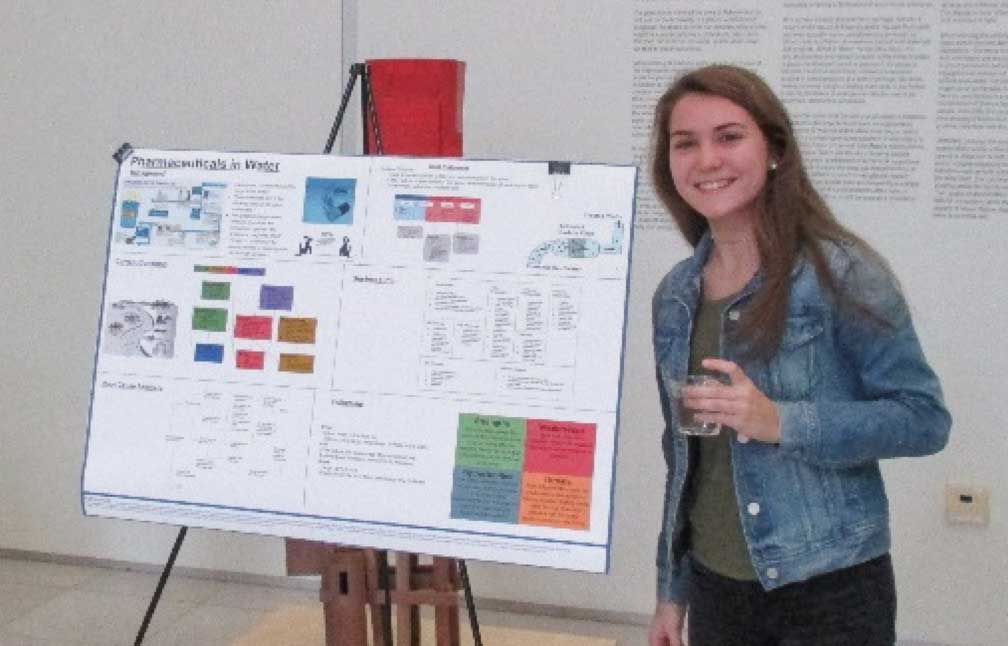
Matt Marshall associate dean, Kate Gleason College of Engineering
Grand challenges – RIT solutions
After decades of increased demand for specialized, highly technical skillsets, employers and society have found many of today’s challenges cannot be solved by technology alone, and many professionals lack the broad skills to play a role in driving change. By integrating carefully planned and directly relevant liberal arts coursework into engineering curricula, RIT’s future engineers have the opportunity to learn more than the technical specs for solving a problem. They also learn why they are solving the problem, who is impacted, and what unintended consequences may come from their solution.
Matt Marshall associate dean, Kate Gleason College of Engineering
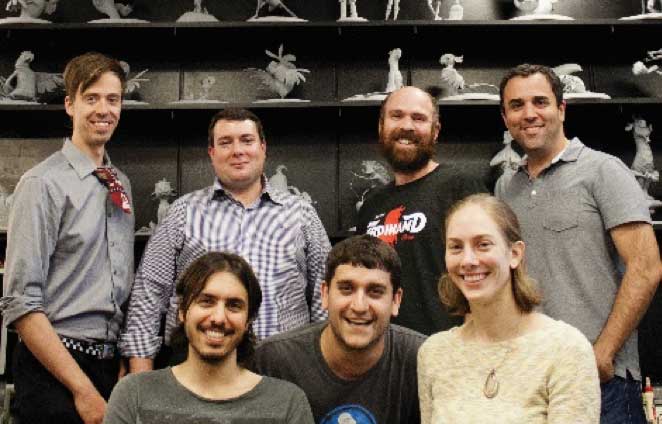
Christopher Moore ’02 (film and animation), Technical Program Manager, Blue Sky Studios
Making movies more magical
The special blend of skills, knowledge, and passion needed to be a feature film animator or visual effects wizard can be seen in our alumni. Developing that blend requires a different approach to education that combines artistic commitment, technological skills, and design thinking. RIT is known for being an outstanding educational choice for this unique environment.
Christopher Moore ’02 (film and animation), Technical Program Manager, Blue Sky Studios
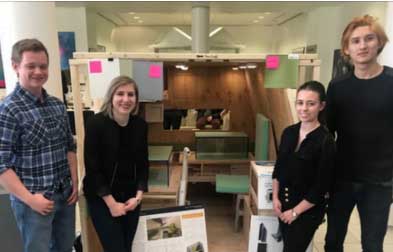
Josh Owen professor and chair, industrial design
Good design needs good space
The first renovation step was to create an open collaboration space, allowing for physically larger projects than the studio was able to accommodate in the past, and dramatically changing the capacity for multidisciplinary collaboration. The seemingly small renovation resulted in immense benefits for an exciting multi-disciplinary student design project called “Hope for Honduras.” This impactful project focused on reducing infant mortality in Honduras. RIT Interior Design students proposed designs to build a 4,200 square-foot neonatal intensive care unit addition at Honduras’ largest public hospital. Industrial Design students designed preemie examination tables and a mobile education unit. The team has been working with an international aid organization, making it possible for their project to change infant care in developing countries.
Josh Owen professor and chair, industrial design
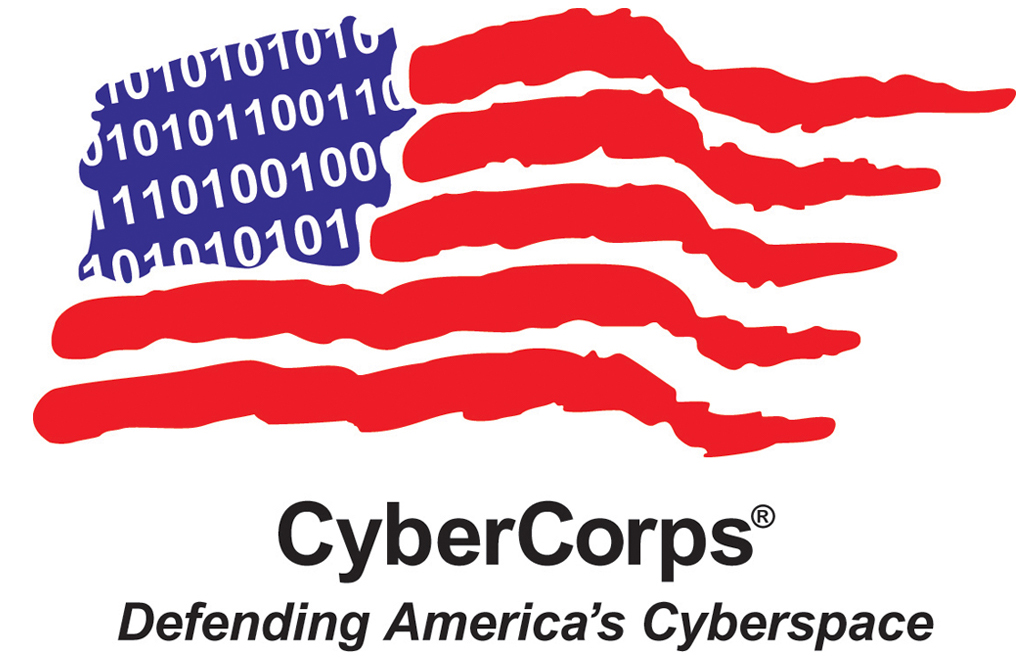
Bo Yuan professor and chair, Department of Computing Security
People are the best defense from cyber attacks
CyberCorps scholarships are open to RIT undergraduates entering their third or fourth year in computing security, computer science or software engineering. The funding covers the final three years of a combined Bachelor/Master of Science degree in computing security. Over the life of the grant, 21 RIT students will receive funding to help pay for tuition, books and professional development, plus annual cash stipends. In exchange for the scholarship, students agree to work in computing security for the government one year for each year they received funding.
Bo Yuan professor and chair, Department of Computing Security
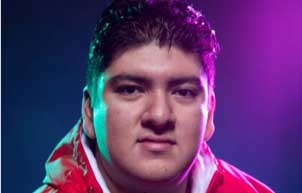
Carlos Villegas ’19 (management), Destler/Johnson Rochester City Scholar
Opportunity created
The program reinforces the City School District’s message that college is an attainable goal for each student, regardless of economic standing. It incents students in the region’s most economically challenged neighborhoods to pursue academic success knowing that there is a reward beyond just high school graduation, helping to further develop a college-going culture among Rochester’s city population.
Carlos Villegas ’19 (management), Destler/Johnson Rochester City Scholar
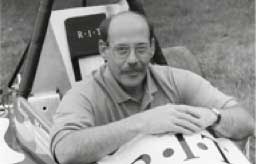
Fernando Fiore ’06 (mechanical engineering)
Honoring a mentor
This valued mentor to generations of students passed away in 2015, and his former students, colleagues and friends found a fitting way to honor his legacy of caring. An online auction for some of Hathaway’s precision tools generated proceeds and keepsakes. The keepsakes provided the donors fond memories of their friend. The proceeds endowed the David L. Hathaway Endowed Scholarship, created to improve the lives of students who have made it to RIT despite extraordinary circumstances.
Fernando Fiore ’06 (mechanical engineering)
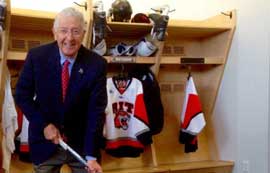
Bruce B. Bates RIT Trustee Emeritus
Leadership for winners
The endowed position provides financial support that is critical to building consistently competitive teams. However, it also provides an attractive component to athletic recruiting efforts in RIT’s multi-division environment, where athletic scholarships are prohibited by NCAA rules. Scott McDonald, the program’s all-time leader in coaching wins, was named the first Bruce B. Bates Women’s Hockey Coach. In his tenure, McDonald has transformed the Tigers into one of the most successful and respected teams in all of college hockey, and making RIT a lightning rod for women interested in playing college hockey.
Bruce B. Bates RIT Trustee Emeritus
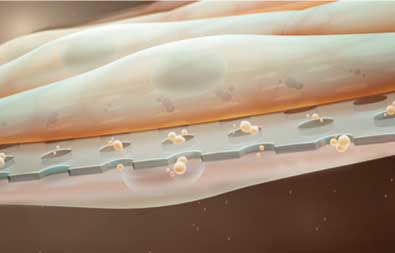
Thomas Gaborski assistant professor of biomedical engineering, Kate Gleason College of Engineering
RIT research may offer new hope for kidney patients
Dr. Tom Gaborski, RIT associate professor of biomedical engineering, is developing these flexible structures made from porous materials for more precise cell filtration and analysis to detect diseases. Gaborski’s team is taking a dual approach in that evolution, testing and improving the nanofabrication process, and at the same time, evaluating the impact of the new nano-porous membranes—more than 1000x thinner than a human hair—on applications such as hemodialysis. The new membranes could be part of a wearable system that goes anywhere the patient does and helps continuously maintain proper water balance.
Thomas Gaborski assistant professor of biomedical engineering, Kate Gleason College of Engineering
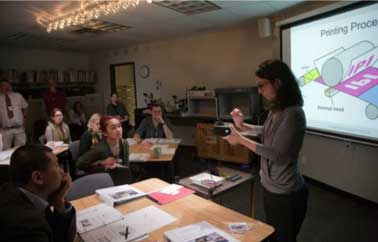
Jennifer Jae Gutierrez executive director, Image Permanence Institute
Making digital permanent
Jennifer Jae Gutierrez executive director, Image Permanence Institute
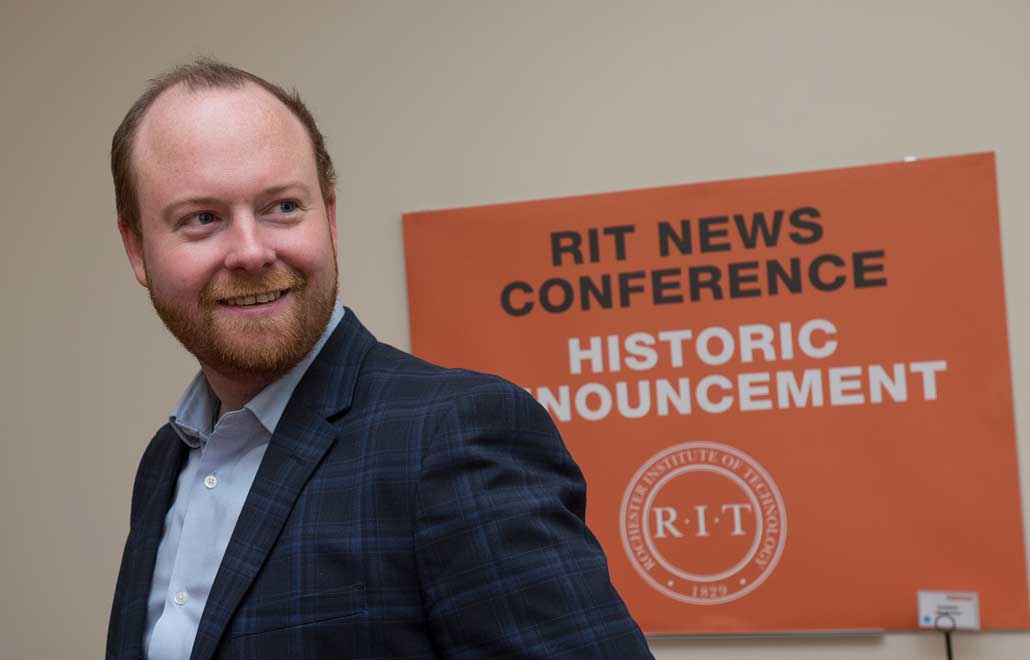
Austin McChord ’09, founder and CEO, Datto, Inc., RIT Trustee and Benefactor
Inspiration to innovate
With the largest gift ever received by RIT, alumnus Austin McChord ’09 has launched exciting plans to transform one of the most important university structures into an innovative learning complex for the entire campus community. RIT is designing the Maker Library & Innovative Learning Complex of the Future, a new facility connecting RIT’s Wallace Library and the Student Alumni Union. This inspiring space will meet growing demands for hands-on making space, including space for many existing RIT clubs and competitive teams, and enable innovative academic and experiential programming not centered in any one college. The new facility will be a signature university structure reflecting a national doctoral university – a Top 100 university in the United States.
Austin McChord ’09, founder and CEO, Datto, Inc., RIT Trustee and Benefactor
Dear RIT Supporters,
Our university has always stayed true to, and protected, our founding mission: preparing the whole student, an individual who is well rounded and well equipped; an individual who is eager to take on whatever the world sets before him or her. These individuals and our beloved university are the inspiration for our blended campaign, Transforming RIT.
Our vision is clear. Our plan is thoughtfully outlined. And the fruits of our campaign will be transformational for our current and future students, our faculty, our national economy, and the greater global society.
Read MoreAs co-chairs of Transforming RIT, we are honored to give back to RIT — a community that has fueled the imagination of each of us. Each time we visit campus, listening to students’ remarkable stories is always the highlight. Their messages of innovation, progress, vitality, and intellectual energy remind us of our founding mission and foretell the promising future of this unique university.
As donors, we understand how that spark within RIT’s story touches and energizes you on an individual level and compels you to give back. If you need more proof of RIT’s value as a philanthropic investment, we invite you simply to spend some time with an RIT student, an RIT professor, or a beneficiary of one of RIT’s wonderful research endeavors. We are confident the encounter will give you great hope for a powerful and bright future for all of us.
Your generous support of RIT’s educational enterprise moves us all forward. Greatness never comes easily, but it begins with the difference you will make with your support. Thank you for joining us now as we enter the greatest time in our remarkable history.

Thomas F. Judson, Jr.
Campaign co-chair
Chairman, The Pike Companies
RIT Trustee
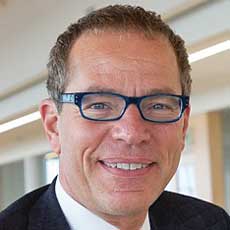
Kevin J. Surace '85
Campaign co-chair
President and CEO, Appvance Inc.
RIT Trustee
